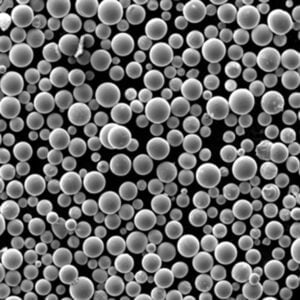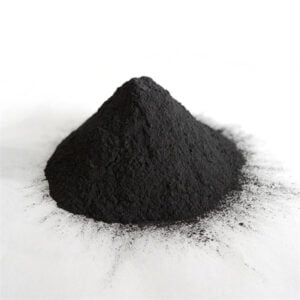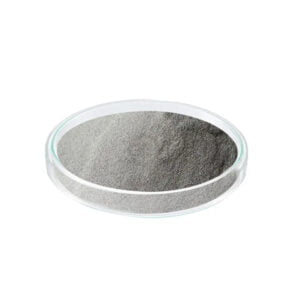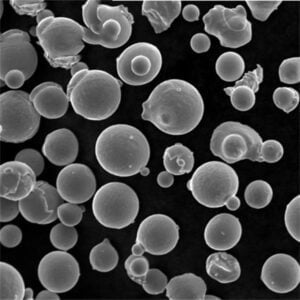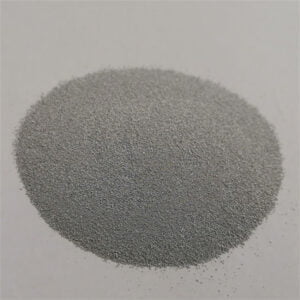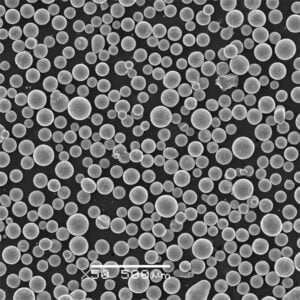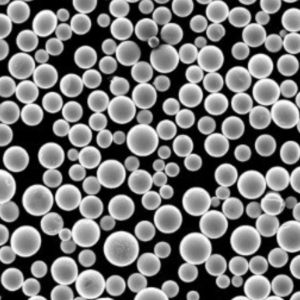Úvod do práškových slitin titanu
Obsah
Prášek ze slitin titanu je univerzální konstrukční materiál s jedinečnými vlastnostmi, díky nimž je vhodný pro pokročilé aplikace v různých průmyslových odvětvích. Tento článek obsahuje přehled práškové metalurgie slitin titanu, výrobních metod, složení, mechanických a fyzikálních vlastností, aplikací, specifikací, cen, výhod a nevýhod a často kladených otázek.
Metody výroby prášku ze slitin titanu
Prášek ze slitin titanu lze vyrábět různými metodami, které ovlivňují vlastnosti prášku, jako je distribuce velikosti částic, morfologie, úroveň čistoty a další. Mezi hlavní způsoby výroby patří:
| Metoda | Popis | Typické vlastnosti prášku |
|---|---|---|
| Atomizace plynu | Proud kapalné slitiny rozkládající se vysokotlakými proudy plynu na jemné kapičky, které tuhnou v prášek. | Sférická morfologie, střední až jemná velikost částic (15-180 μm), složení slitiny na míru, vysoká čistota. |
| Proces plazmové rotující elektrody (PREP) | Hrot elektrody roztavený plazmovým obloukem, odstředivá síla vytváří mikrokapičky, které tuhnou v prášek. | Sférické částice, velmi jemný prášek (25-75 μm), střední čistota, široké možnosti slitin |
| Hydrid-dehydrid (HDH) | Proces tvorby a rozkladu hydridů slitin dává porézní hrubý prášek | Nepravidelná morfologie, velká velikost částic (75-250 μm), střední až vysoká čistota, omezené slitiny |
Výsledkem každé výrobní metody je prášek ze slitin titanu s odlišnými vlastnostmi, který se hodí pro různé aplikace v různých průmyslových odvětvích.

Složení prášku ze slitin titanu
Prášek ze slitin titanu pro metalurgii se skládá z titanu smíchaného hlavně s hliníkem a vanadem se stopovými přídavky železa, kyslíku, uhlíku a dusíku. Mezi běžné složení titanových slitin podle hmotnostních procent patří:
| Slitina | Hliník | Vanad | Ostatní prvky |
|---|---|---|---|
| Ti-6Al-4V (třída 5) | 5.5-6.75% | 3.5-4.5% | Železo ≤ 0,3%, kyslík ≤ 0,2%, uhlík ≤ 0,1%, dusík ≤ 0,05%. |
| Ti-6Al-4V ELI (Extra Low Interstitial, třída 23) | 5.5-6.5% | 3.5-4.5% | Železo ≤ 0,3%, kyslík ≤ 0,13%, uhlík ≤ 0,08%, dusík ≤ 0,05%. |
| Ti-10V-2Fe-3Al | 2.5-3.5% | 9-11% | Železo 1,8-2,2%, kyslík ≤ 0,2%, uhlík ≤ 0,1%, dusík ≤ 0,05%. |
Chemické složení prášku ze slitin titanu lze přizpůsobit tak, aby se optimalizovaly výkonnostní profily od pevnosti a tvrdosti po odolnost proti korozi, biokompatibilitu, odolnost proti vysokým teplotám, úsporu hmotnosti a další priority v závislosti na konečném použití.
Prášek ze slitin titanu Vlastnosti
Mezi klíčové vlastnosti prášku ze slitin titanu, které se hodnotí napříč aplikacemi, patří:
| Vlastnictví | Ti-6Al-4V | Ti-6Al-4V ELI | Ti-10V-2Fe-3Al |
|---|---|---|---|
| Hustota (g/cm3) | 4.42 | 4.42 | 4.35 |
| Bod tání (°C) | 1604-1660 | 1604-1660 | 1590-1650 |
| Mez pevnosti v tahu (MPa) | 860-1200 | 860-1050 | 900-1150 |
| Mez kluzu (MPa) | 750-1100 | 760-960 | 800-1050 |
| Prodloužení při přetržení (%) | 8-15 | 8-12 | 7-14 |
| Modul pružnosti (GPa) | 100-115 | 95-115 | 90-110 |
| Tvrdost (HRC) | 30-38 | 32-36 | 30-40 |
Práškové slitiny titanu nabízejí pokročilý profil vlastností kombinující nízkou hmotnost titanu s vysokým poměrem pevnosti k hmotnosti, lomovou houževnatostí, únavovou a korozní odolností vhodnou pro kritické aplikace.
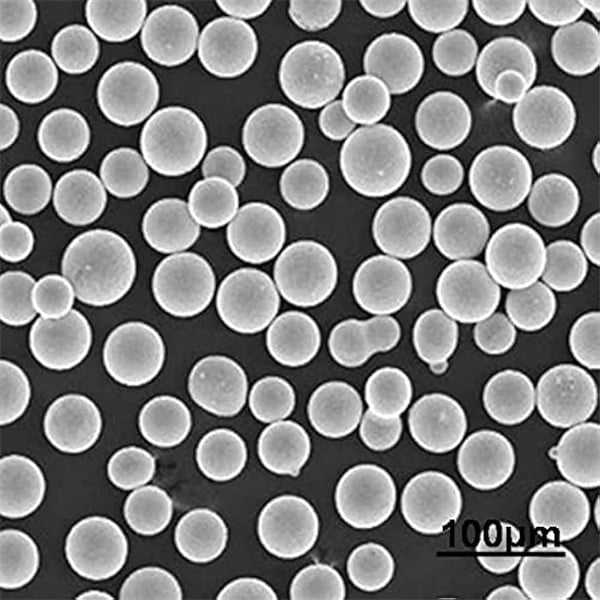
Práškové aplikace slitin titanu
Lehká pevnost, biokompatibilita a odolnost vůči extrémním vlivům prostředí činí ze slitin titanu univerzální volbu pro všechny trhy. Mezi typické aplikace patří:
| Průmysl | Aplikace |
| Aerospace | Letecké motory a konstrukční součásti, konstrukce kosmických lodí, rakety |
| Lékařský | Ortopedické a zubní implantáty, chirurgické nástroje, protetika |
| Automobilový průmysl | Ventily, ojnice, pružiny, spojovací materiál, součásti výfuku |
| Chemické | Čerpadla, ventily, potrubí, nádrže, reakční nádoby pro odolnost proti korozi |
| Výroba elektřiny | Lopatky parních a plynových turbín, součásti plošin na moři |
| Sportovní zboží | Golfové hole, tenisové rakety, jízdní kola a další výkonné vybavení |
| Ropa a plyn | Vrtné trubky, vrtné soupravy na moři, součásti hlavic vrtů |
Tato náročná prostředí v různých odvětvích využívají vlastnosti titanových slitin, jako je vysoký poměr pevnosti a hmotnosti, odolnost proti únavě, lomová houževnatost, odolnost proti korozi a biokompatibilita.
Specifikace prášku ze slitin titanu
Prášky ze slitin titanu se vyrábějí ve standardizovaných specifikacích pro chemický složení, distribuci velikosti částic, morfologii a další parametry přizpůsobené potřebám aditivní výroby nebo lisování a spékání.
| Parametr | Specifikace |
|---|---|
| Stupeň slitiny | Ti-6Al-4V, Ti-6Al-4V ELI, Ti-10V-2Fe-3Al, ostatní jakosti |
| Tvar částice | Sférické, nepravidelné tvary |
| Rozsah velikosti částic (μm) | 15-45, 45-100, 100-180 upřednostňované pro AM |
| Průtok v hale (s/50g) | >32 sekund, což svědčí o dobré tekutosti prášku |
| Zdánlivá hustota (g/cm3) | 2,7-3,2 pro sférický, 2,2-2,8 pro nepravidelný prášek |
| Hustota kohoutku (g/cm3) | >4,0, zlepšuje účinnost balení |
Pro vysoce výkonný prášek je rozhodující splnění chemických testů v povolených mezích pro kyslík, dusík, uhlík, železo a další stopové prvky. Tyto specifikace umožňují vhodnost zpracování při technikách AM nebo lisování a spékání.
Srovnání prášku ze slitin titanu
Nejpoužívanější práškové varianty titanových slitin - Ti-6Al-4V, Ti-6Al-4V ELI a Ti-10V-2Fe-3Al - mají rozdílné vlastnosti:
| Ti-6Al-4V | Ti-6Al-4V ELI | Ti-10V-2Fe-3Al | |
|---|---|---|---|
| Síla | Vysoká pevnost | Mírně nižší pevnost, ale lepší tažnost | Pevnost srovnatelná s Ti-6Al-4V |
| Svařitelnost | Mírný | Vynikající | Lepší než Ti-6Al-4V |
| Odolnost proti korozi | Mírný | Lepší pro citlivé aplikace | Vynikající odolnost proti korozi |
| Náklady | Mírná cena | Mírný nákladový příplatek | Nižší cena než u slitin Ti-6Al-4V |
| Biokompatibilita | Vynikající | Vynikající pro tělesné implantáty | Méně výhodné pro zdravotnické prostředky |
Prášek Ti-6Al-4V ELI vyniká tažností, svařitelností, biokompatibilitou a odolností proti korozi, ale stojí více, zatímco Ti-10V-2Fe-3Al vyniká odolností proti korozi při nižší ceně, ale ztrácí v biomedicínské vhodnosti ve srovnání se slitinami třídy 5 a 23.
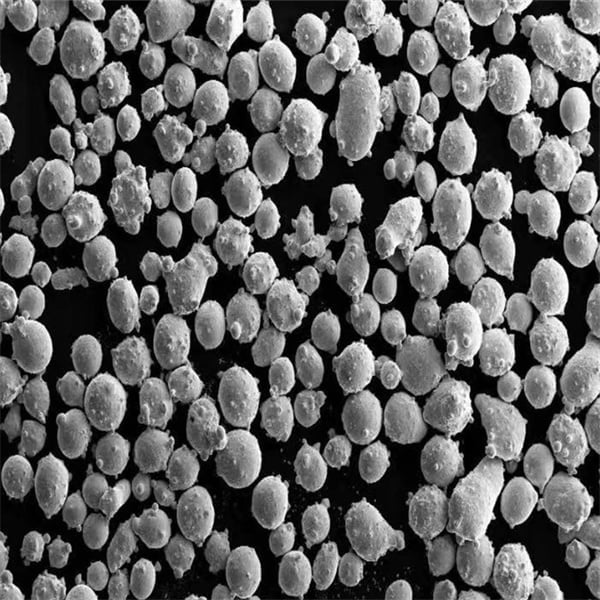
Ceny prášku ze slitin titanu
Prášek ze slitin titanu má oproti ocelovým práškům významnou cenovou prémii díky náročnosti zpracování a jedinečným vlastnostem:
| Stupeň prášku | Cenové rozpětí (USD za kg) |
|---|---|
| Ti-6Al-4V | 120 – 160 |
| Ti-6Al-4V ELI | 135 – 185 |
| Ti-10V-2Fe-3Al | 100 – 165 |
Náklady závisí na způsobu výroby, chemickém složení, rozdělení velikosti, tvaru a objednaném množství. Nepravidelný prášek může být levnější než sférický. Příplatky za argon nebo vakuové balení se rovněž uplatňují. Výrazné množstevní slevy rovněž snižují ceny za kilogram.
Prášek ze slitin titanu Výhody a nevýhody
| Klady | Nevýhody | |
|---|---|---|
| Mechanické vlastnosti | Vysoký poměr pevnosti a hmotnosti, pevný, ale lehký | Nižší pevnost než u některých slitin oceli |
| Fyzikální vlastnosti | odolný proti korozi, biologicky kompatibilní, nemagnetický, tepelně vodivý. | Vysoká reaktivita s prvky, jako je kyslík, vyžadující inertní zacházení. |
| Zpracování | Vhodnost pro více technik AM, možnost tepelného zpracování | Výroba sférického prášku je dražší než výroba ocelí |
| Výkon | Vynikající lomová houževnatost, únavová životnost, odolnost proti opotřebení | Může trpět vodíkovou křehkostí, sklonem k oděru |
| Ekonomika | Velká možnost úspory hmotnosti | Vyšší náklady na materiál než u ocelových alternativ |
Práškové slitiny titanu zvyšují výkon, ale za cenu vyšších nákladů. Překonávají oceli v měrné pevnosti i odolnosti vůči vlivům prostředí, ale zaostávají v absolutních ukazatelích pevnosti a nákladů. Některé titanové slitiny může trápit také kratší únavová životnost, absorpce vodíku a otěr.
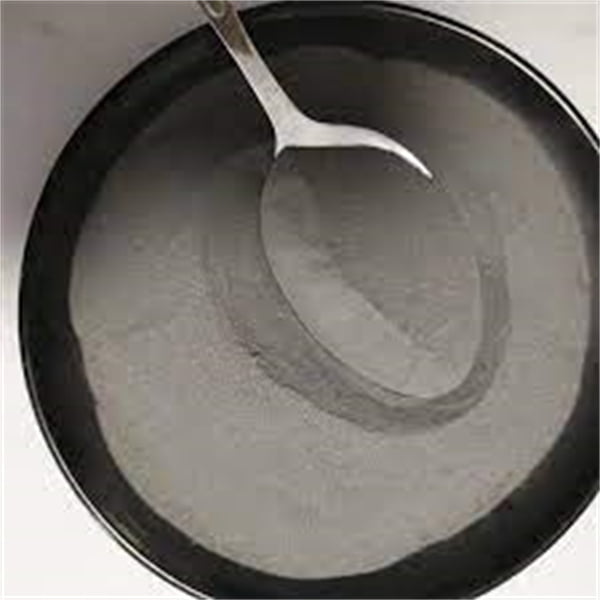
FAQ
| Otázka | Odpovědět |
|---|---|
| Jaké jsou hlavní slitiny titanu dostupné v práškové formě? | Nejpoužívanějšími prášky ze slitin titanu jsou Ti-6Al-4V, Ti-6Al-4V ELI a Ti-10V-2Fe-3Al, které se vyrábějí v běžných rozměrech částic a složeních připravených pro AM. Možné jsou i slitiny na zakázku. |
| Jaký rozsah velikosti částic se nejlépe hodí pro práškovou AM slitin titanu? | Optimální je velikost částic v rozmezí 15-100 mikronů s průměrnou velikostí mezi 30-60 mikrony. Příliš jemná velikost vede k problémům při manipulaci s práškem a jeho rozmetání. Příliš hrubý může způsobit menší hustotu dílů. |
| Jak se skladuje prášek ze slitin titanu a jak se s ním manipuluje? | Pročišťování inertním plynem a minimalizace vystavení vzduchu je rozhodující, aby se zabránilo zachycení kyslíku, který může změnit chemický složení slitiny. Vakuově uzavřené nádoby a rukavicové boxy plněné argonem umožňují efektivní skladování prášku a manipulaci s ním. |
| Jaké následné zpracování se používá u titanových dílů AM? | Tepelné úpravy, jako je izostatické lisování za tepla a žíhání, mohou pomoci zlepšit mechanické vlastnosti. Povrchová úprava může zahrnovat CNC obrábění, vrtání, broušení a leštění. K vyvolání tlakových napětí se používá také kuličkování. |
| Jsou titanové slitiny po aditivní výrobě recyklovatelné? | Ano, použitý titanový prášek lze často zachránit, přesít a smíchat s původním práškem pro další použití. U některých titanových slitin se dosahuje výtěžnosti recyklace vyšší než 90%, což přináší významné úspory nákladů. |
Závěry
Díky vlastnostem, jako je vysoká měrná pevnost, odolnost proti únavě a korozi, umožňují práškové titanové slitiny vyrábět lehčí a odolnější díly v letectví, zdravotnictví, automobilovém průmyslu, energetice a dalších náročných aplikacích. Pokroky v metalurgii titanových prášků dále rozšiřují jejich využití prostřednictvím optimalizovaných prášků přizpůsobených pro techniky AM.
Přední titanové třídy Ti-6Al-4V, Ti-6Al-4V ELI a Ti-10V-2Fe-3Al vyvažují vlastnosti, jako je pevnost, tažnost, houževnatost, svařitelnost, biokompatibilita a chemická odolnost, za atraktivní ceny. Pokračující vývoj titanových slitin a pokrok v možnostech AM zpracování kovů urychlí využití titanového prášku pro kritické součásti.
Sdílet na
MET3DP Technology Co., LTD je předním poskytovatelem řešení aditivní výroby se sídlem v Qingdao v Číně. Naše společnost se specializuje na zařízení pro 3D tisk a vysoce výkonné kovové prášky pro průmyslové aplikace.
Dotaz k získání nejlepší ceny a přizpůsobeného řešení pro vaše podnikání!
Související články

Vysoce výkonné segmenty lopatek trysek: Revoluce v účinnosti turbín díky 3D tisku z kovu
Přečtěte si více "O Met3DP
Nedávná aktualizace
Náš produkt
KONTAKTUJTE NÁS
Nějaké otázky? Pošlete nám zprávu hned teď! Po obdržení vaší zprávy obsloužíme vaši žádost s celým týmem.

Kovové prášky pro 3D tisk a aditivní výrobu
SPOLEČNOST
PRODUKT
kontaktní informace
- Město Qingdao, Shandong, Čína
- [email protected]
- [email protected]
- +86 19116340731






